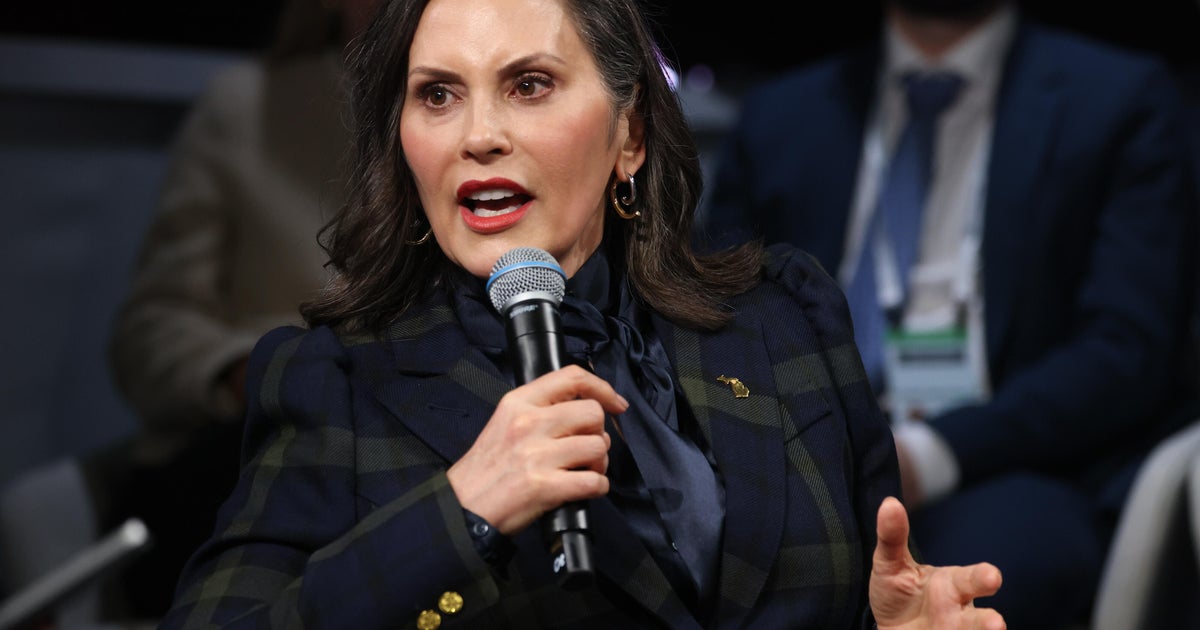Transcript: National Security Council spokesman John Kirby on "Face the Nation," Jan. 14, 2024
The following is a transcript of an interview with National Security Council spokesman John Kirby that aired on Jan. 14, 2024.
MARGARET BRENNAN: We're joined now by Admiral John Kirby of the White House National Security Council. It's good to have you here.
COORDINATOR FOR STRATEGIC COMMUNICATIONS, NATIONAL SECURITY COUNCIL, JOHN KIRBY: Thank you.
MARGARET BRENNAN: We received that report about two Navy SEALs missing off the coast of Somalia, they were attempting to board a small ship believed to be carrying weapons from Iran to Yemen. What is the status?
KIRBY: As far as we know that- that search is still ongoing for those- for those two sailors that are in the water. And we hope to get some updated information today. But we're obviously watching this very closely.
MARGARET BRENNAN: This is directly related to what is going on.
KIRBY: This was not related to the strikes in Yemen. This was normal interdiction operations that we've been conducting for some time to try to disrupt that flow of weapons supplies to Yemen. So not- not related to the strikes that we took against the Houthis.
MARGARET BRENNAN: But- so- still- in this region, the Houthis, as you just mentioned there, say the motivation here is they're trying to get back at Israel's allies. That's the justification they're using for attacking some of these ships. Does the US assess that these coalition strikes will deter the Houthis? Or are you bracing for retaliation and an open-ended conflict?
KIRBY: I think it'd be pollyannaish for us to think that there couldn't or may not be some sort of retaliatory strike by the Houthis. We're watching this very, very closely. We've taken- we've taken the requisite necessary precautions in the region to make sure we're ready for that if that should occur. These strikes were meant to disrupt and dis- degrade their ability to conduct these strikes. And so, we think that we had good effect on that. We're still assessing the- the battle damage assessment of those strikes, but we think we had good effect. We'll see what happens. The- the Houthis have a choice to make here now , Margaret, and the right choice is to stop these reckless attacks. And no matter what they say, this is not about punishing Israel. I mean, one of the ships they took a shot at yesterday was Panamanian flagged and it was taking Russian oil, it had nothing to do with Israel.
MARGARET BRENNAN: So, it- it may be an open-ended conflict. We don't know if deterrence has been established.
KIRBY: Nobody wants a conflict with the Houthis. We're not looking for a conflict with Yemen here. We're trying to get these attacks to stop.
MARGARET BRENNAN: So, you used to work very closely with the Defense Secretary, Lloyd Austin.
KIRBY: Yes.
MARGARET BRENNAN: And as we were just talking about, everyone is hoping he pulls through this battle with cancer healthy and strong. But why is he still in the hospital? If he's able to work, why does he still need to be at Walter Reed?
KIRBY: Well, again, I'm not- I'm not his physician. So, I want to be careful. But my understanding is that his- he's following his doctor's orders and in consultation with their views in terms of what kind of additional care he needs. And we'll- we'll see, you know, when he can get released, but obviously, they still feel like he- he may need some additional care. I understand that part of that is just physical therapy.
MARGARET BRENNAN: So- okay. Does the President talk to him on a daily basis? Because I think one of the things that surprised a lot of people, knowing what a tinderbox the Middle East is, Europe is, and the concern about China, was how infrequently there was direct contact between the White House and the defense secretary for that entire period of time at the end of December through January.
KIRBY: There's routine regular communications between the President and the Secretary of Defense, as well- as well, the Secretary of State--
MARGARET BRENNAN: -- How do you not know that he was sick?
KIRBY: -- And- and normally, like, for instance, the- some of the strikes, we took on Christmas Day, Christmas night, and then a few days later, were pre-approved. Secretary Austin was part of that discussion. He was part of the discussion from his hospital room, when we took these strikes against these Houthi sites, just a couple of nights ago. I mean, he's actively involved and engaged. And I think it's important for people to remember that the Cabinet officials don't have to sit and talk every single day to make every decision. A lot of the work that gets done in national security is done at the staff level.
MARGARET BRENNAN: Right. But there is a chain of command here.
KIRBY: Of course there is.
MARGARET BRENNAN: And the commander-in-chief didn't know that his defense secretary was this ill.
KIRBY: And that's a problem. And the President has spoken to that. That- that is not the way it's supposed to be. It's certainly something we need to get more answers to. And the Pentagon is investigating this, and- and we'll see what comes out of that. But that- that is not the way the process is supposed to work. That is right.
MARGARET BRENNAN: You know, as we acknowledged here, it's been 100 days since that Hamas attack on Israel that sparked where we are now. Does the U.S. need to press Israel harder to move into the low intensity conflict they say they intend to move towards?
KIRBY: I can tell you, Secretary Blinken just came from the region, that we have been talking to them intensely about a transition to low intensity operations. We believe it's the right time for that transition. And we're talking to them about doing that. Now they have done some precursory steps to try to kind of get to that point. They're some- pulling some troops out, they're relying a little less on airstrikes. But we believe that- look, any military campaign, you go through phases, and the next logical phase here, as they have put pressure on Hamas leadership, is to get to lower intensity operations, more targeted, more precise raids, less airstrikes. We believe it's time to make that transition. And we have had that conversation with them.
MARGARET BRENNAN: Time to make that transition because it's now a detriment to U.S. national security to be giving them cover for this long?
KIRBY: Because it's the right thing to do in this military campaign against Hamas. They have put pressure on leadership. They have gone after that leadership. They have been able to go after some of the resourcing and infrastructure that Hamas uses to conduct these attacks. We're not saying let your foot up off the gas completely and don't keep going after Hamas. It's still a viable threat. They have every right and responsibility to go after that. It's just that we believe the time is coming here very, very soon for a transition to this lower intensity phase.
MARGARET BRENNAN: Right. Because, you know, even Democratic senators like Chris Van Hollen have said, the quote in Axios is, "at every juncture the Netanyahu government has given Biden the finger." That the White House is just being told, we don't care.
KIRBY: We have had intense conversations with the Israelis. We know that those conversations have had effects, Margaret. I mean, they went into North Gaza with a much smaller force than they were originally planned to, because we gave them advice about what our experiences were in places like Mosul and Fallujah. We- we've seen them now establish humanitarian corridors, we've seen them drop leaflets telling people where to go, where not to go. I mean, that's basically telegraphing your punches, and not a lot of modern militaries would do that. I'm not saying it's perfect. And we're certainly not walking away from the need to reduce civilian casualties and get more humanitarian aid in. It's getting in, two- couple hundred trucks a day, not enough. And we're going to keep that- we're going to keep having those conversations with them.
MARGARET BRENNAN: Thank you so much for coming and joining us in-studio.
KIRBY: Yes, ma'am.
MARGARET BRENNAN: We'll be back in a moment.



